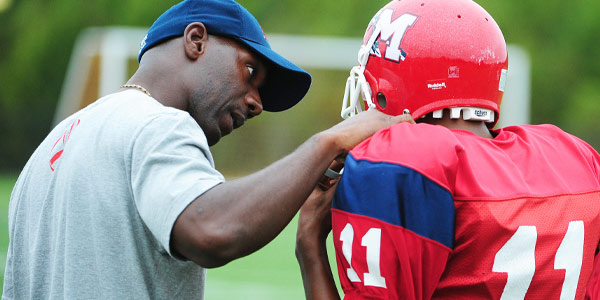How to Help Kids Through Stress and High Expectations
Ryan Colby, a mental health specialist for athletes, has seen a big jump in the number of kids experiencing anxiety and depression during the pandemic—and that includes sports kids who were already feeling pressure. Kids are also struggling with identity issues if they’ve invested a lot in their sport and aren’t competing.
“I’m seeing crazy spikes in anxiety and depression,” he told us on our latest Ultimate Sports Parent podcast.
Athletes are often put on pedestals, which means they feel increased pressure to meet others’ high expectations. That creates pressure, and can lead to anxiety and depression if the athletes don’t meet these expectations, he said.
“When kids are on a pedestal, it takes the stresses we already have and intensifies them,” said Colby.
In addition, shortened seasons or an unexpected end to their sports careers add to kids’ mental health issues and lead to identity struggles.
“Often, kids’ identities are based on sports. When the opportunity to play sports is taken away, they often grapple with identity issues,” Colby said. “If they’re removed from something that has brought value and meaning and purpose, losing it can bring up questions like ‘Who am I if I’m not competing?’”
For example, athletes in their last year of high school may not be able to participate in sports during their final season. If they don’t expect to play sports beyond high school, it’s a sudden end to an activity they may have invested in for many years.
Parents can help sports kids dealing with identity issues by encouraging them to seek out a broader range of activities and interests.
Those interests might include art, music, reading or volunteering, for example.
Parents can help kids cope with depression and anxiety by seeking out help for them. At home, parents can encourage kids to get enough sleep.
“Adolescents need eight to nine hours of sleep. Adults need seven to eight hours. If they’re getting less than six hours, they’ll experience cognitive dysfunction,” he said.
Eating well is also important. Kids need to stay hydrated and avoid eating sugar. And even if sports kids aren’t playing sports right now, it’s still important to get exercise, said Colby.
If young athletes are playing sports right now, parents should be positive. Tell kids you love watching them play.
If they decided to move from soccer to ceramics, parents should be supportive.
“Simply taking joy in watching them and expressing that is important,” said Colby.
Listen to the entire interview with Colby:
Related Articles on Kids’ Mental Game:
- Anxiety, Depression on Rise in Youth Sports
- When Youth Sports Feels Toxic, Athletes Need These Skills
- Helping Young Athletes Build Connection and Confidence
*Subscribe to The Sports Psychology Podcast on iTunes
*Subscribe to The Sports Psychology Podcast on Spotify
Improve Your Mental Game From Anywhere In The World

We’re certain that, as a parent, you want to help your child develop confidence and discipline in sports and life. And as a sports parent, you’d love for your children to reach their potential in sports. But encouraging your child to strive for greatness without pressuring them can be a challenge.
You can get expert mental coaching with us from anywhere. Meet with us via Zoom, Skype, FaceTime or phone call. With today’s video technology, we are able to connect with athletes and coaches all over the globe.
Call Us Today to Schedule Your Free 15-Minute Session.
Find Out How Your Athlete Can Benefit From One-on-One Mental Coaching!


I’m encouraged reading this article. I’m concerned about my 11 Yr old grandson who’s parents went through a horrible violent separation. My grandson did not see his father for two years. That is all in the past and now he sees his dad often, however his Dad broke his ankle and can’t really practice with my grandson. So I want to help him in any way I can.